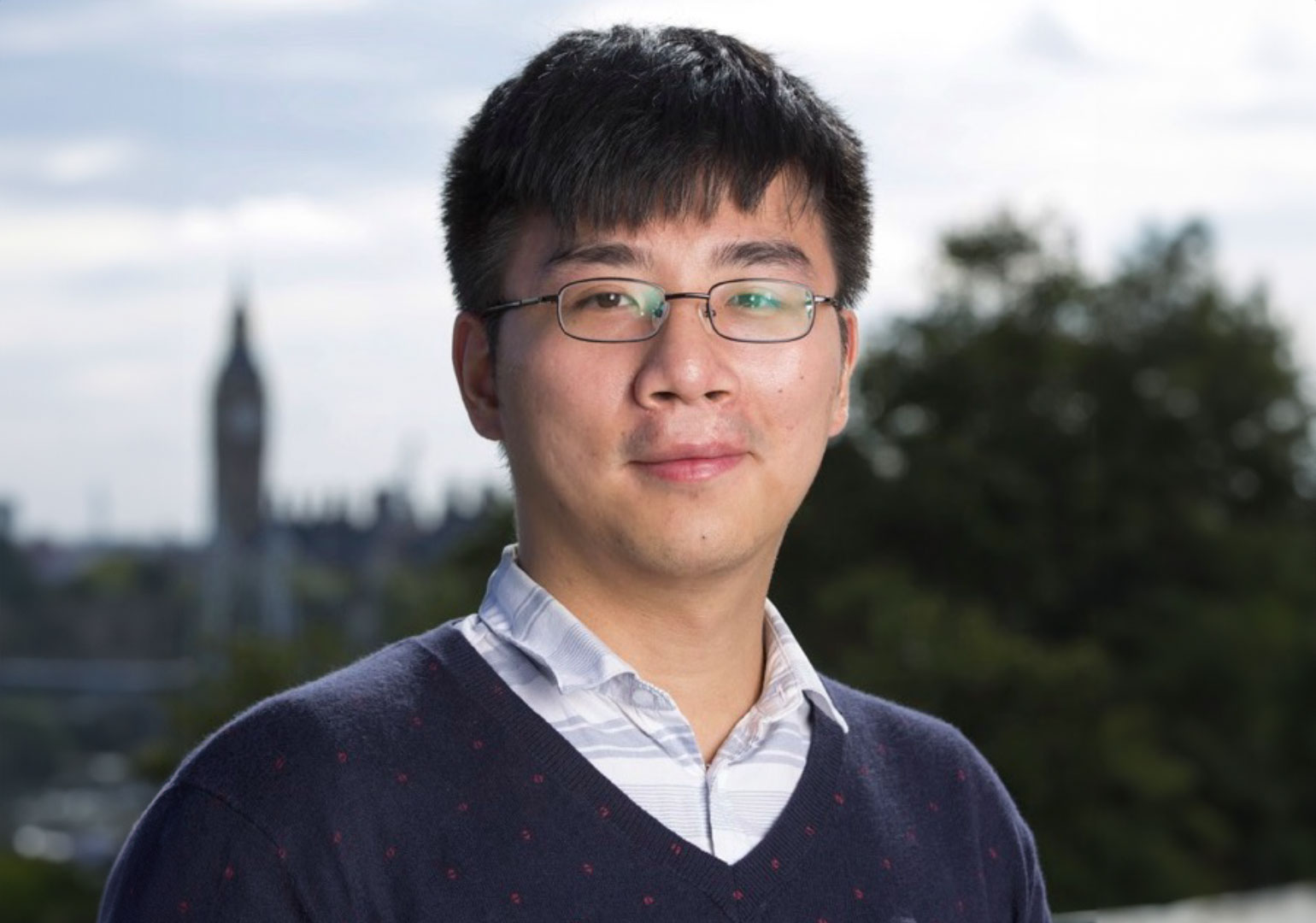Photo courtesy of Allen Cao
The cloud has officially levelled up, and it is no longer just a storage solution floating in the digital ether. Thanks to the infusion of artificial intelligence (AI), the world is witnessing a change that makes the cloud smarter, faster, and more intuitive than ever before.
Allen Cao (a.k.a Kun Cao), a senior AI scientist at Amazon Web Services (AWS), contributes to the future of cloud services through advanced AI systems solutions. With an engineering and computer science background, he represents the multidisciplinary nature of modern AI research and its applications in cloud technology.
He completed his Doctor of Philosophy at Imperial College London, where his work on computational modelling and optimization led to patents and garnered attention from the tech community. His academic pursuits also led him to a global fellowship at the University of Hong Kong, focusing on computational fluid dynamics with machine learning. Throughout his education, Cao consistently excelled, achieving top marks in various subjects, including physics, mathematics, and engineering.
Cao’s Quest to Improve the AI Space
Allen Cao’s inventive perspective is evidenced by his multiple patents and projects at AWS, such as the Routing Service via Hierarchical Unified Graph Embedding (HUGE). The invention combines advanced AI technologies, including natural language processing and graph machine learning, to create new tools for data analysis and knowledge management in cloud environments. It was filed as a United States patent in 2021 and has been successfully commercialized as an AI service.
“The system autonomously constructs and expands knowledge graphs from diverse and unstructured information sources. Today’s data-rich environment needs this capability, as extracting meaningful relationships and insights from unorganized data presents a major challenge,” he explains.
Additionally, colleagues and superiors have noticed Allen Cao’s contributions to cloud AI systems. Glowing testimonials from his co-workers reinforce his reputation as a tech leader.
“Allen is a super curious technical powerhouse. He masters multiple-solving methodologies, programming languages and development environments. As such, he is a reliable and capable team member who is always happy to support. He digs deep on challenges and pushes the envelope further in thinking and developing solutions,” shares the Amazon Vice President for North American Operations, Yonatan Gal.
The Recent AI Boom
Based on his extensive work at AWS, Allen Cao notes that earlier AI systems were good at processing natural language and identifying patterns.
However, he points out that 2023 marked a significant turn toward generative systems focusing on creation. “I can compare this change to a child’s learning. Now, AI is moving from understanding to creating original content, similar to how a child learns to speak and write after mastering listening and understanding,” he explains.
According to the cloud AI expert, AI model training methods have also changed greatly. Traditionally, this process heavily depended on large amounts of human-labeled data. Now, Allen Cao and his team at AWS are using more thorough training processes.
While the process still needs some labelled data, Cao stresses the growing importance of reinforcement learning later on. For this method, models actively try different outputs and adjust based on feedback. “This leads to more targeted learning, potentially making way for more capable and flexible AI systems.”
Allen Cao again compares this to human learning, noting that while individuals start with structured education, they eventually move to active exploration and learning from experience.
The expert is currently researching these training methods. The move toward active learning in AI is a massive step towards creating more independent and adaptable systems. His research and new ideas in this area also create new possibilities for AI applications across various domains, from content creation to problems solving in cloud computing and beyond.
AI-Enhanced Customer Support
Allen Cao stresses that the field of customer care is ready for AI integration. He describes a future where AI helps troubleshoot customer problems, providing potential causes and solutions for human customer care representatives to review before responding to clients. This could lead to faster problem-solving and more consistent service quality.
These changes naturally progress the cloud industry, building on its foundation of providing scalable services to businesses worldwide. “AI integration is a way to improve cloud services further, making them even smarter and more self-service oriented,” Allen Cao shares.
That said, human oversight in these AI-driven processes is still non-negotiable. While AI can significantly improve efficiency, human knowledge remains non-negotiable when making final decisions and guaranteeing that solutions fit specific business needs and contexts.
Allen Cao predicts that companies that successfully integrate artificial intelligence into their cloud services and operations will be well-positioned to lead in this new phase of cloud computing. He believes this growth will benefit both cloud service providers and their customers, who will gain access to more advanced and intelligent cloud solutions.
User Experience Towards Customization, Personalization, and Process Intelligence
From his extensive experience at AWS and as a founding member of re:Post, an intelligent knowledge hub of AWS that helps builders overcome technical roadblocks, Allen Cao imagines a new generation of AI products that will change how users interact with technology and attract millions of users.
Current generative AI products, particularly those based on large language models, already have rich world knowledge and essential reasoning abilities. These help users with everyday tasks such as trip planning and email writing.
“Integrating advanced techniques like graph retrieval augmented generation (RAG) and multimodality will bring in a new phase of AI-driven personalization,” he shares, adding that RAG enables AI systems to access up-to-date and domain-specific information, making responses more contextually relevant.
In Cao’s view, future AI will be able to fully understand individual user preferences and create content tailored to those preferences. He illustrates this idea with an example of an AI housekeeper who can mimic the tone and style of a user’s late spouse while also managing daily planning based on updated schedules and personal habits.
“This level of personalization will create more meaningful and emotionally connected interactions between users and artificial intelligence systems,” Allen Cao remarks.
Moreover, the potential impact of improvements in chain of thought reasoning and reinforcement learning on AI abilities should be highlighted, as manifested by AI products with more detailed intelligence than current systems.
“Imagine a tutor chatbot that provides correct answers to math or physics problems while also accurately showing the reasoning steps to reach the solution,” he cites.
According to Cao, this growth in cloud AI abilities will enhance the educational value of AI-driven tutoring systems. Through detailed explanations and multiple problem-solving strategies, these advanced AI tutors will encourage students to develop critical thinking skills.
When fully realized, these cloud AI technologies will create more intuitive user experiences across various applications. As AI systems become better at responding to individual user needs, they will increasingly serve as valuable personal assistants, improving productivity and quality of life in many ways.
However, Allen Cao also notes the importance of addressing ethical considerations and privacy concerns as AI becomes more integrated into personal lives. “Clear AI development practices and strong data protection measures are still necessary for user trust and safety,” he says.
A Promising Future for AI
The impact of Allen Cao’s work on cloud AI systems is like giving the cloud a brain transplant. What once was a vast, somewhat passive storage system has become an intelligent, proactive ecosystem that can anticipate needs.
With Allen Cao’s ideas, the road ahead for cloud AI promises to be exciting. The world can expect to see cloud services that are capable of learning and, in some areas, perhaps even outsmarting their human creators—in a non-apocalyptic way, of course.

















